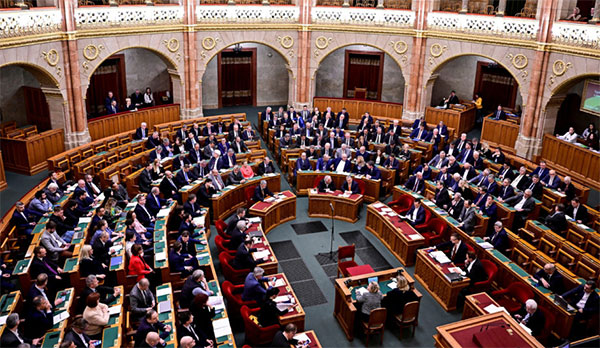Finland’s request was approved by all 276 MPs present, just days after Hungary’s parliament did the same.
“This will make the entire NATO family stronger and safer,” NATO Secretary General Jens Stoltenberg tweeted in response to Turkey’s decision.
As Russia invaded Ukraine a year ago, Finland and Sweden abandoned their decades-long nonalignment stance and applied to join the alliance.
The 30-member alliance requires unanimous approval to accept new members, and Turkey and Hungary were the final two NATO nations to confirm Finland’s entrance.
However, Sweden’s ambition to join NATO has been stalled, with both Turkey and Hungary refusing to give it the go-ahead despite voicing support for NATO expansion.
Turkey’s government accuses Sweden of being overly indulgent toward groups it considers terrorist organizations and security dangers, such as militant Kurdish groups and those linked to a 2016 coup attempt.
Turkey was recently enraged by a series of protests in Sweden, including one by an anti-Islam activist who burnt the Quran outside the Turkish Embassy.
Hungary’s government claims that some Swedish MPs made disparaging remarks about Hungary’s democracy and actively participated in freezing billions of euros in European Union money due to alleged rule-of-law and democratic infractions.
According to Turkish authorities, Finland, unlike Sweden, fulfilled its commitments under a memorandum agreed last year in which the two nations committed to resolve Turkey’s security concerns.
“Being a NATO member, we naturally had some expectations and demands about our country’s security issues,” said Akif Cagatay Kilic, a politician from President Recep Tayyip Erdogan’s ruling party, before the vote. “I’d want to emphasize Finland’s specific measures and implementation, which backed and influenced the choice we’re making here.”
“I’m aware that there are a significant number of people following us from Finland,” Kilic continued. We may greet them by saying, ‘Welcome to NATO.'”
Several opposition parties criticized Turkey’s government’s stance toward the two Nordic nations.
“Unfortunately, (Erdogan’s ruling party) has used the authority to veto Finland and Sweden’s membership aspirations as an instrument of coercion and menace.” “We do not support it,” Hisyar Ozsoy, a pro-Kurdish lawmaker, stated. “We consider the negotiation process (to secure the extradition of Kurdish dissident writers, politicians, and journalists) to be nasty, unjust, and illegal.”
When asked about Sweden’s NATO membership earlier this week, Erdogan told reporters, “There are some things we expect of them.” These must be completed first.”
Sweden, which amended its constitution to enact harsher anti-terrorism legislation, has voiced hope that it will be allowed to join NATO before the July summit in Vilnius, Lithuania.
“Sweden faces more substantial challenges in its ambition,” emailed Hamish Kinnear, Middle East and North Africa analyst at risk intelligence firm Verisk Maplecroft.
“Turkey is unlikely to ratify its membership in the alliance before the May election.” The Quran burning event prompted widespread outrage in Turkey, and President Tayyip Recep Erdogan will not want to risk alienating his conservative constituency ahead of the election, according to Kinnear.
The membership of Finland, which shares a 1,340-kilometer (832-mile) border with Russia, is geographically and politically significant for NATO, according to Mai’a Cross, a political science professor at Northeastern University.
“Finland is already present in NATO summits.” It is already modernizing its military forces,” she stated. “As a result, when it formally joins NATO, it will be able to hit the ground running.”

